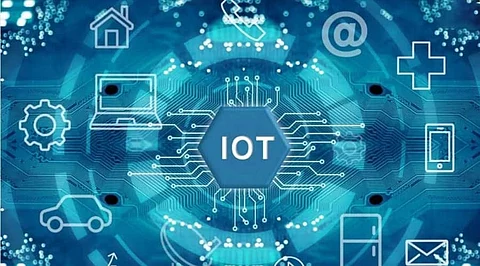

Internet of Things (IoT) is a popular topic for discussion among individuals working in the tech and in the manufacturing industry. IoT is a hyped-up futuristic technology and is also known for its social and technological wonders. The latest IoT trends can attest to the fact that this technology has revolutionized several industries. It has helped businesses improve processes, boost earnings, and provide better customer services.
IoT and its smart sensors have already paved the way for automation enhancements in different sectors, along with the increasing use of the cloud and the development of 5G. The emerging trends in IoT are majorly driven by artificial intelligence, edge computing, blockchain, and others. This article talks about some of the top trends and predictions of IoT that will change the tech world in 2022.
The IoT market will witness a renewed focus on security. Experts believe that by 2022, IoT network hacking will become a common phenomenon. Network operators will act as cybersecurity personnel and prevent intruders from causing any harm. Since cyberattacks have become so common lately, companies like Sierra, Wireless, and others who have been cyber-attacked previously have adopted IoT-driven cyber tools. Other companies, like Ericsson, Microsoft, and U-Blox, have come up with their own threat detection and security service tools.
IoT analytics and data are detecting applications in IoT networks. These systems trigger alerts while transferring volumes of data to the network cores. Integrated analytics are now being deployed into solutions as providers and business leaders want to accelerate data analysis. These systems support IoT devices, processes, applications, and infrastructure adoption and optimization, ensuring improved performances as networks operate in a low latency environment.
There are several proofs, reports, and examples of the successful implementation of IoT in business models, where it has enhanced the performance of the company by increasing its output and by improving other business metrics and objectives. With the help of automation, manufacturers are transforming their entire business models into more innovative and productive ones.
Virtual and augmented reality with IoT can bind together the physical and the digital worlds. It brings in an opportunity for the application of IoT data in AR and VR technologies. Implementing IoT in these technologies brings economic benefits like reduced costs and several new and increased profits and opportunities. Combining these technologies might help companies educate employees about the virtual prototypes of products, types of equipment and can also help contemplate various strategies to determine business growth.
The healthcare industry has been experimenting with IoT technologies for years now. This industry is leading in IoT adoption and innovation. Different types of equipment like wearable sensors and devices, tracking, and indoor navigation tech are discovered using IoT. It can also enhance lighting systems by linking them to health monitors and deploying sensors.
The establishment of smart cities will be the result of IoT and edge computing technologies. Experts are discussing the next innovations in smart digital connectivity. Some cities in the United States are already contemplating connecting utilities, parking meters, and traffic lights to IoT networks. The IoT market is expected to grow up to US$639.74 billion by 2022. Smart cities will not only improve the social living standards but will also benefit citizens from economic aspects.
IoT technologies have massively impacted customer services providing information. IoT can improve the power of CRM systems, which helps them to detect customer problems and report them to the companies. These systems even allow the companies to join customer discussions for improved consumer engagement, which eventually leads to customer retention. The increasing use of IoT can be witnessed during the pandemic to enforce social distancing measures.
Join our WhatsApp Channel to get the latest news, exclusives and videos on WhatsApp
_____________
Disclaimer: Analytics Insight does not provide financial advice or guidance. Also note that the cryptocurrencies mentioned/listed on the website could potentially be scams, i.e. designed to induce you to invest financial resources that may be lost forever and not be recoverable once investments are made. You are responsible for conducting your own research (DYOR) before making any investments. Read more here.
